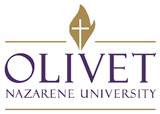Archive for June, 2015
I cannot forgive Hitler. To do so would be folly given his evil acts. So, in some cases is forgiving an act of folly?
Forgiveness is a moral virtue. All moral virtues (such as justice, patience, kindness, and love-in-service-to-others) are good. Therefore, forgiveness is good. Goodness is not folly. Because forgiveness is part of goodness, it follows that forgiveness cannot be folly.
That said, you may not be ready right now to forgive certain people for certain unjust actions. This does not make you a bad person. Forgiveness does not have the same quality as justice. Certain forms of justice are so important that they are encoded into laws of the state: Do not murder, for example. Forgiveness is not codified into law because it is the person’s choice whether or not to forgive a given person for a given unjust action. So, if you do not want to forgive Hitler for the pain he has caused to you (and he can cause pain to those who were born long after World War II), then you need not do so, and remain a good person.
Dr. Lisa Gassin, IFI Founding Board Member, Receives Award for Academic Excellence
Dr. Elizabeth (Lisa) Gassin, a founding board member of the International Forgiveness Institute, received the 2015 Samuel L. Mayhugh Award for Scholarly Excellence from Olivet Nazarene University during the 102nd Commencement Convocation on May 9.
Dr. Gassin teaches courses in developmental and cross-cultural psychology. She has been an Olivet faculty member since 1995, except when she was working in Russia from 2000 through 2003. In 2007, she received Olivet’s Richard M. Jones Faculty Award for Teaching Excellence.
She holds degrees in human development; educational psychology with an emphasis in gifted education; educational and developmental psychology with minors in research and statistics and moral education; and marriage and family counseling. She focuses her research on the psychology of forgiveness, bereavement and play therapy.
Dr. Gassin has produced various publications and presentations on the topic of forgiveness. She is a member of the Association for Play Therapy and the American Counseling Association. Serving the greater Kankakee community, she provides counseling services and also volunteers with Hospice of Kankakee Valley.
She has earned a Ph.D. from the University of Wisconsin, two master’s degrees — one from Purdue University and one from Governors State University — and a bachelor’s degree from the University of California-Davis. Currently, she is in a specialized graduate research program in  qualitative research methods with Nova Southeastern University.
qualitative research methods with Nova Southeastern University.
“Dr. Gassin is an outstanding example for our students of scholarly achievement, Christian service and compassion for others,” said Dr. Dennis Crocker, vice president for Academic Affairs. “Her commitment to learning and growing, both as a professor and an academic leader, continues to inspire others.”
Olivet Nazarene University is an accredited Christian, liberal arts university offering more than 120 areas of undergraduate and graduate study. Olivet’s main campus is in Bourbonnais, Illinois, 50 miles south of Chicago.
Read Dr. Gassin’s full Curriculum Vitae.
A Reflection on “Do No Harm”
In the process of forgiveness that we have outlined in two different books (Forgiveness Is a Choice and The Forgiving Life) there is one part of the process in which we ask the forgiver to “Do no harm” to the one who has been unjust. This idea of “Do no harm” is actually transitional to the even more difficult challenge to love the one who has hurt you. Yet, “Do no harm,” even though an earlier and supposedly easier part of the process, is anything but easy.
To “Do no harm” means three things: 1) Do not do obvious harm to the one who hurt you (being rude, for example); 2) Do not do subtle harm (a sneer, ignoring at a gathering, being neutral to this fellow human being); and 3) Do not do harm to others. In other words, when you are angry with Person X, it is easier than you think to displace that anger onto Persons Y and Z. If others have to ask, “What is wrong with her (him) today?” perhaps that is a cue that you are displacing anger from one incident into your current interactions.
It is at these times that it is good to take stock of your anger and to ask, “Whom do I need to forgive today? Am I ‘doing no harm’ as I practice forgiveness? Am I being vigilant not to harm innocent others because of what I am suffering?”
My challenge to you today: Do no harm to anyone throughout this entire day…..and repeat tomorrow…..and the day after that.
Robert
8 Keys to Forgiveness: Dr. Enright’s New Book Unlocks the Forgiveness Process
While it may seem like a simple enough act, forgiveness is a difficult, delicate process that, if executed correctly, can be a profoundly moving and deep learning experience. Whatever the scenario may be—whether you need to make peace with a certain situation, with a loved one or  friend, or with a total stranger—the process of forgiveness is an art and a science.
friend, or with a total stranger—the process of forgiveness is an art and a science.
8 Keys to Forgiveness is a how-to guide by the man Time magazine has called “the forgiveness trailblazer”—Dr. Robert Enright, who has researched, developed and implemented forgiveness education programs for the past 30 years.
This hands-on guide walks readers through the process in 8 key steps. How can we become forgivingly “fit”? How can we identify the source of our pain and inner turmoil? How can we find meaning in what we have suffered, or learn to forgive ourselves? What should we do when forgiveness feels particularly hard? All these questions and more are answered here, leading us to become more tolerant, compassionate, and hopeful human beings.
“This book has the potential to enrich and improve more lives than any psychology book in decades,” according to Frank Farley, Ph.D., former President of the American Psychological Association. “Robert Enright is the pioneer of the psychology of forgiveness, and his great wisdom, experience, and very practical advice are all compiled in this highly readable guide. Don’t give up on forgiveness in your life until you read this book and try its proven strategies.” (Read more reviews and endorsements here.)
Dr. Enright’s latest book is officially publishing September 28 but will be available directly from W. W. Norton & Company for mid-June delivery at the W.W. Norton & Company website.
Does the one who is forgiven owe anything to the one who was hurt and who forgave?
If the one who is forgiven knows that he or she has done wrong, then yes, the one who offended can try to make amends. An apology and an attempt to make right that which went wrong can open the door to reconciliation.




